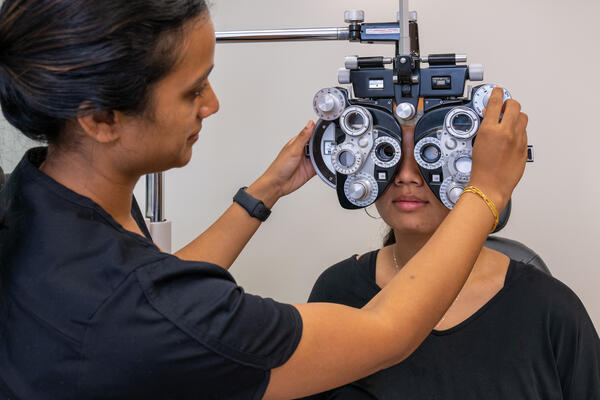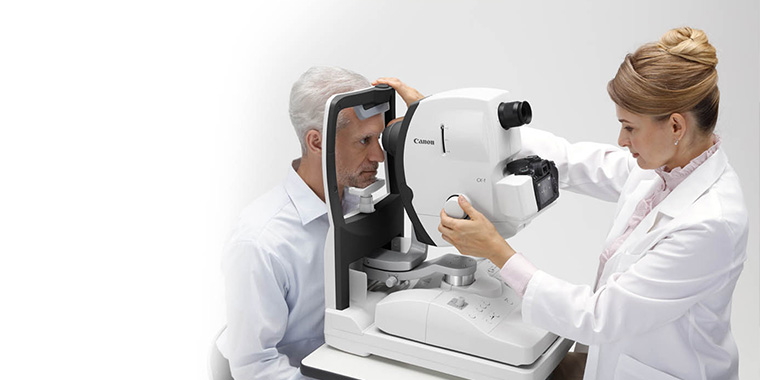Neurologist in Andalusia: Advanced Mind Health Solutions at Our Clinic
Neurologist in Andalusia: Advanced Mind Health Solutions at Our Clinic
Blog Article
Is Refractive Surgical Treatment Right for You? Factors to Consider for Better Eyecare
In the world of eye treatment, the decision to undergo refractive surgical treatment is a weighty one that demands thoughtful factor to consider. From the details of one's ocular health to the complexities of individual expectations and everyday habits, each element holds value in the wider landscape of refractive surgical procedure candidateship.
Eye Health Evaluation
When thinking about refractive surgery, a detailed eye health and wellness evaluation is critical to evaluate the suitability of the procedure for each and every person. cardiologist andalusia. This evaluation includes a series of examinations and tests performed by an eye treatment specialist to establish the general health and wellness of the eyes, the visibility of any kind of underlying conditions, and the stability of the refractive mistake
During the evaluation, numerous elements are thought about, such as the person's case history, current eye prescription, corneal density, pupil dimension, and tear film high quality. These assessments help to identify any type of contraindications to refractive surgical treatment, such as corneal problems, cataracts, or untreated eye infections. In addition, the assessment helps to handle individual assumptions pertaining to the potential results of the surgical procedure based upon their special eye attributes.
Inevitably, the eye health and wellness assessment is important in guaranteeing the security and efficiency of refractive surgical treatment, as it gives beneficial insights right into the individual's eye wellness condition and assists figure out one of the most appropriate therapy choices for accomplishing optimal visual outcomes. (cardiologist andalusia)
Way Of Life Analysis
An extensive way of life assessment is integral in determining the viability of refractive surgical treatment for a person's aesthetic correction needs. Way of living factors such as profession, leisure activities, and day-to-day activities play a crucial function in the decision-making process regarding refractive surgical procedure.
Moreover, way of life behaviors such as sports participation, exterior tasks, or also skin care regimens can influence the healing process and overall success of refractive surgical procedure. By carrying out a thorough way of living evaluation, eye treatment specialists can customize their suggestions and treatment strategies to satisfy the special demands of each patient, inevitably leading to boosted aesthetic outcomes and satisfaction.
Expectation Positioning

Clients need to understand that while numerous individuals attain 20/20 vision or far better adhering to refractive surgical treatment, some may still need glasses for particular activities like analysis or driving at evening. Taking care of these assumptions assists protect against disappointment and discontentment post-surgery, leading to a much more favorable total experience for the client.
Risk Evaluation

Aspects that might boost the risk of issues include age, certain clinical problems like autoimmune conditions, unsteady vision prescription, thin corneas, and unrealistic patient assumptions. Additionally, choosing a skilled and competent surgeon, adhering to pre and post-operative care instructions diligently, and revealing any appropriate clinical history can aid minimize dangers.
To decrease the chance of complications, ophthalmologists perform thorough pre-operative evaluations to determine any type of contraindications to surgical treatment. They also review the possible threats and benefits with people during the consultation procedure. By participating in open communication and shared decision-making, both the person and the eye doctor can work together to figure out if refractive surgery is the right choice based upon private threat accounts and wanted results.
Examination Value
Thinking about the important duty of educated decision-making in examining dangers and potential complications in refractive surgical treatment, the assessment process holds significant value in leading people in the direction of optimum results. During the appointment, the ophthalmologist evaluates the individual's eye health and wellness, refractive mistakes, and general suitability for surgery. This preliminary assessment is critical in figuring out the most ideal treatment for each and every person, taking into account elements such as corneal thickness, pupil size, and existing eye problems.
Furthermore, the appointment works as a possibility for people to review their expectations, issues, and any type of inquiries they might have relating to the surgical treatment. Clear interaction in between the cosmetic surgeon and the client special info is necessary to ensure practical expectations and a detailed understanding of the prospective threats and benefits involved.
Furthermore, the appointment enables the specialist to clarify the various medical options available, their particular results, and the post-operative treatment needed. This extensive conversation equips individuals to make knowledgeable decisions regarding their eye care, resulting in better complete satisfaction and end results post-surgery.
Conclusion
Finally, people taking into consideration refractive surgical procedure ought to go through a comprehensive eye wellness examination, analyze their way of living behaviors, align their expectations with potential see this here end results, assess the involved threats, and prioritize examinations with eye care professionals. These factors play an important function in identifying the suitability of refractive surgery for every individual, guaranteeing optimum results and satisfaction with the treatment.
Patients taking into consideration refractive surgery commonly have high assumptions regarding the end results, expecting ideal vision without the requirement for glasses or get in touch with lenses. While refractive surgical treatment can considerably boost vision and minimize dependence on visual help, it is crucial for patients to comprehend that results might vary based on individual elements such as the degree of refractive error, corneal density, and general eye health and wellness.
By engaging in open communication and shared decision-making, both the ophthalmologist and the person can work together to identify if refractive surgical procedure is the appropriate option based on individual threat profiles and desired results.
Thinking about the crucial duty of informed decision-making in assessing risks and possible complications in refractive surgical treatment, the consultation procedure holds substantial value in assisting patients in the direction of optimum end results. During the examination, the eye doctor assesses the client's eye health, refractive mistakes, and overall suitability for surgery.
Report this page